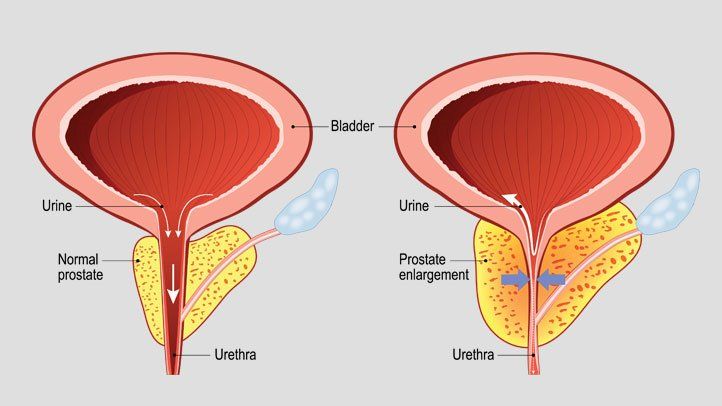In men, urine flows from the bladder through the urethra. BPH is a benign (noncancerous) enlargement of the prostate that blocks the flow of urine through the urethra. The prostate cells gradually multiply, creating an enlargement that puts pressure on the urethra — the “chute” through which urine and semen exit the body.
As the urethra narrows, the bladder has to contract more forcefully to push urine through the body.
Over time, the bladder muscle may gradually become stronger, thicker, and overly sensitive; it begins to contract even when it contains small amounts of urine, causing a need to urinate frequently. Eventually, the bladder muscle cannot overcome the effect of the narrowed urethra so urine remains in the bladder and it is not completely emptied.
Symptoms of enlarged prostate can include:
- A weak or slow urinary stream
- A feeling of incomplete bladder emptying
- Difficulty starting urination
- Urgency to urinate
- Getting up frequently at night to urinate
- A urinary stream that starts and stops
- Straining to urinate

